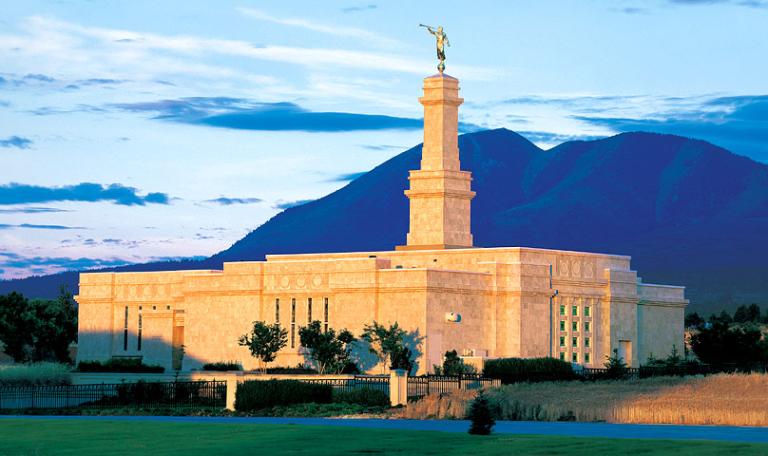
I attended the funeral this morning of my friend James Brown Allen, who passed away recently in his ninety-eighth year. In my experience, the faith-filled funeral services of good people are among the best and most inspirational of meetings, and this one was no exception.
Neal Lambert, like the Allens a resident of the Jamestown Assisted Living Center, was the first speaker. They had known each other since the days when, as young men, they had worked in the lodge at the Grand Canyon. His “appreciation” addressed Jim directly, and movingly.
J. Michael Allen, one of Jim’s sons, delivered the eulogy. I will return to it again in just a moment.
The third speaker was Thomas G. Alexander, who succeeded Jim as the holder of the prestigious Lemuel Hardison Redd Jr. Chair in Western American History at Brigham Young University and who, like me and my wife, was a member with Jim of the Gadianton Polysophical Marching and Chowder Society, our monthly reading group. It was another excellent talk, devoted to a considerable degree to Jim’s academic and professional achievements — including, for example, his co-founding of the Mormon History Association — and to Jim’s ecclesiastical service.
I can’t do justice to any of the talks, so I won’t attempt to do so. But it was an excellent funeral, and it was fun for me to see and to chat with a number of long-retired BYU colleagues and historians. But I said that I would return briefly to Mike Allen’s talk, and I will do so now.
A couple of years ago, Mike told the congregation, one of the family gave Jim a small edition of Marcus Tullius Cicero’s essay On Old Age (De Senectute), which the famous Roman politician, orator, and philosopher wrote when he was roughly sixty-two or sixty-three years of age. Strictly speaking, the full title of the essay is Cato Maior de Senectute (Cato the Elder on Old Age), with Cato Maior as the title and De Senectute as the subtitle, but the subtitle has become much more popular. As with many of Cicero’s writings, the essay is addressed to his friend Atticus.
In order to lend more heft to his thoughts on aging and death, though, Cicero wrote his essay as if it were the voice of the much-admired Roman hero Marcus Porcius Cato (234-139 BC), a staunchly conservative soldier, senator, historian, and farmer, a defender of Roman virtue against Hellenism, from an earlier generation. As Cicero sets the essay, Cato is approaching his eighty-forth birthday, and the elder statesman addresses Scipio Aemilianus (aka Scipio Africanus the Younger) and Gaius Laelius Sapiens , who were impressed at how well he was handling the challenges of advanced age and the certainty of impending death. Presumably, though, the sentiments expressed by “Cato” are actually those of Cicero himself.
Mike says that, when a copy of On Old Age was presented to his father, his father responded as if the title were a kind of accusation. They agreed afterwards that he would probably never read it. And, sure enough, when they began to go through some of his books they found that the little volume of Cicero still looked pristine and untouched.
Until they opened it. It was heavily annotated, with passages underlined and marked with asterisks, and with marginal commentary. One of the most heavily marked passages was the following (though it may or may not have been in this 1923 translation from the Loeb Classical Library). The reference to a “Cato” within the text is to a son who predeceased Cato the Elder; Cato was a family name:
Really, Scipio, I am carried away with the desire to see your father, and yours too, Laelius, both of whom I honoured and loved; and, indeed, I am eager to meet not only those whom I have known, but those also of whom I have heard and read and written. And when I shall have set out to join them, assuredly no one will easily draw me back, or boil me up again, as if I were a Pelias. Nay, if some god should give me leave to return to infancy from my old age, to weep once more in my cradle, I should vehemently protest; for, truly, after I have run my race I have no wish to be recalled, as it were, from the goal to the starting-place. For what advantage has life — or, rather, what trouble does it not have? But even grant that it has great advantage, yet undoubtedly it has either satiety or an end. I do not mean to complain of life as many men, and they learned ones, have often done; nor do I regret that I have lived, since I have so lived that I think I was not born in vain, and I quit life as if it were an inn, not a home. For Nature has given us an hostelry in which to sojourn, not to abide.
O glorious day, when I shall set out to join the assembled hosts of souls divine and leave this world of strife and sin! For I shall go to meet not only the men already mentioned, but my Cato, too, than whom no better man, none more distinguished for filial duty, was ever born. His body was burned by me, whereas, on the contrary it were more fitting that mine had been burned by him; but his soul, not deserting me, but ever looking back, has surely departed for that realm where it knew that I, myself, must come. People think that I have bravely borne my loss — not that I bore it with an untroubled heart, but I found constant solace in the thought that our separation would not be long.
I was impressed with this passage (“I quit life as if it were an inn, not a home. For Nature has given us an hostelry in which to sojourn, not to abide”), and with Jim Allen’s attraction to it. As his son Mike reminded the congregation, Jim too was acquainted with grief. He had, of course, lost both parents. Two years ago, he lost his wife, Renée, although it might truly be said that he had already lost her to Alzheimer’s disease several years before. And, nine years ago, he had lost his daughter Kathleen. It can easily be seen how Cato the Elder’s confident anticipation of reunions beyond the veil of death would have spoken to him.
Posted from Moab, Utah













